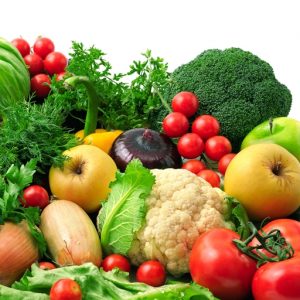– a resurgence in interest in ‘local food’.
.
Over the past few weeks, there have a couple of developments focussing on the issues around food:
- back in March, the Sidmouth Science Festival’s Café Scientifique held a talk by Prof Evan Parker which proposed, among other things, setting up a network of small-holdings to serve the local food market;
- in parallel, the Science Festival’s biodiversity and horticulture working group was set up to see how these specific issues could be advanced, the outcome of which has been the launch of a biodiversity group and the setting up of a separate food group;
- and in May, the VGS and the Town Council’s environment committee put together a questionnaire which showed a real determination from respondents to continue to make use of the local food and grocery shops which have served us so well over the last weeks.
‘Food’, however is not simply a matter of scale or technology; and the issues do sometimes feel overwhelming, from trying to define what ‘sustainable food’ is to trying to predict where ‘the food industry’ is going.
However, there are some really inspiring things going on attached to the Transition Town movement, for example. And looking at what is possible through these sort of practical projects, it is clear that things can happen locally, whether it’s the reach of the Incredible Edible Network or the flowering of the veg box scheme Fresh & Green and the In My Back Yard food coop in East Devon.
 Fundamentally, though, there does seem to be a resurgence in interest in ‘local food’, whether it be production or outlets. Radio 4’s Food Programme has looked at local community support through food and how the corner shop has come into its own. We are, then, changing our shopping habits which is something you have no doubt noticed.
Fundamentally, though, there does seem to be a resurgence in interest in ‘local food’, whether it be production or outlets. Radio 4’s Food Programme has looked at local community support through food and how the corner shop has come into its own. We are, then, changing our shopping habits which is something you have no doubt noticed.
In particular, an interest in Community Supported Agriculture has really surged over the past weeks – whether it’s about appreciating the fragility in our food system, or using more locally grown food, or wealth-building for our local economic recovery, or trying to get people to sign up for local community-supported agriculture.
.
Here’s a little more:
.
Community-supported agriculture (CSA model) is a system that connects the producer and consumers within the food system more closely by allowing the consumer to subscribe to the harvest of a certain farm or group of farms.
It is an alternative socioeconomic model of agriculture and food distribution that allows the producer and consumer to share the risks of farming.[1] The model is a subcategory of civic agriculture that has an overarching goal of strengthening a sense of community through local markets.[2]
In return for subscribing to a harvest, subscribers receive either a weekly or bi-weekly box of produce or other farm goods. This includes in-season fruits and vegetables and can expand to dried goods, eggs, milk, meat, etc. Typically, farmers try to cultivate a relationship with subscribers by sending weekly letters of what is happening on the farm, inviting them for harvest, or holding an open-farm event. Some CSAs provide for contributions of labor in lieu of a portion of subscription costs.[3]
Community-supported agriculture – Wikipedia
.
Why using more locally grown food will prevent empty shelves
Improved local food supply chains could help prevent empty shelves, experts at the University of Sheffield have claimed.
The team at the Institute for Sustainable Food at the university said that local producers have become a crucial source of supplies for the UK’s food system during the coronavirus pandemic and could improve its resilience for the long term.
Why using more locally grown food will prevent empty shelves | Yorkshire Post
.
Wealth-building for our local economic recovery
As we begin to emerge from the COVID-19 lockdown, calls for local government to lead the economic recovery are getting louder. Key among these voices are local politicians who have stewarded their places through the last two months. Many are convinced of the imperative to build back better, committed to leaving behind the failed models of trickle-down economics and ready not just to recover, but to embrace progressive reform with ideas such as community wealth-building.
Wealth-building for our local economic recovery
.
Coronavirus exposed fragility in our food system – it’s time to build something more resilient
Most people rely on supermarkets, and these megastores dominate our food economy. They are part of a system that depends on large-scale agriculture and production, smooth-flowing international food trade and fast turnaround times.
But what happens when system vulnerabilities are exposed and they break down? What catches our fall?
We need a resilient food system. This means going beyond the ecological idea of resilience as merely survival during times of stress, and instead proactively building a food system that can both respond quickly to changing circumstances and act as a safety net.
Coronavirus exposed fragility in our food system – it’s time to build something more resilient
.
Now is the time to sign up for local community-supported agriculture. Here’s why
Community-supported agriculture programs benefit at-risk farmers most as the pandemic underlines the value of local food systems